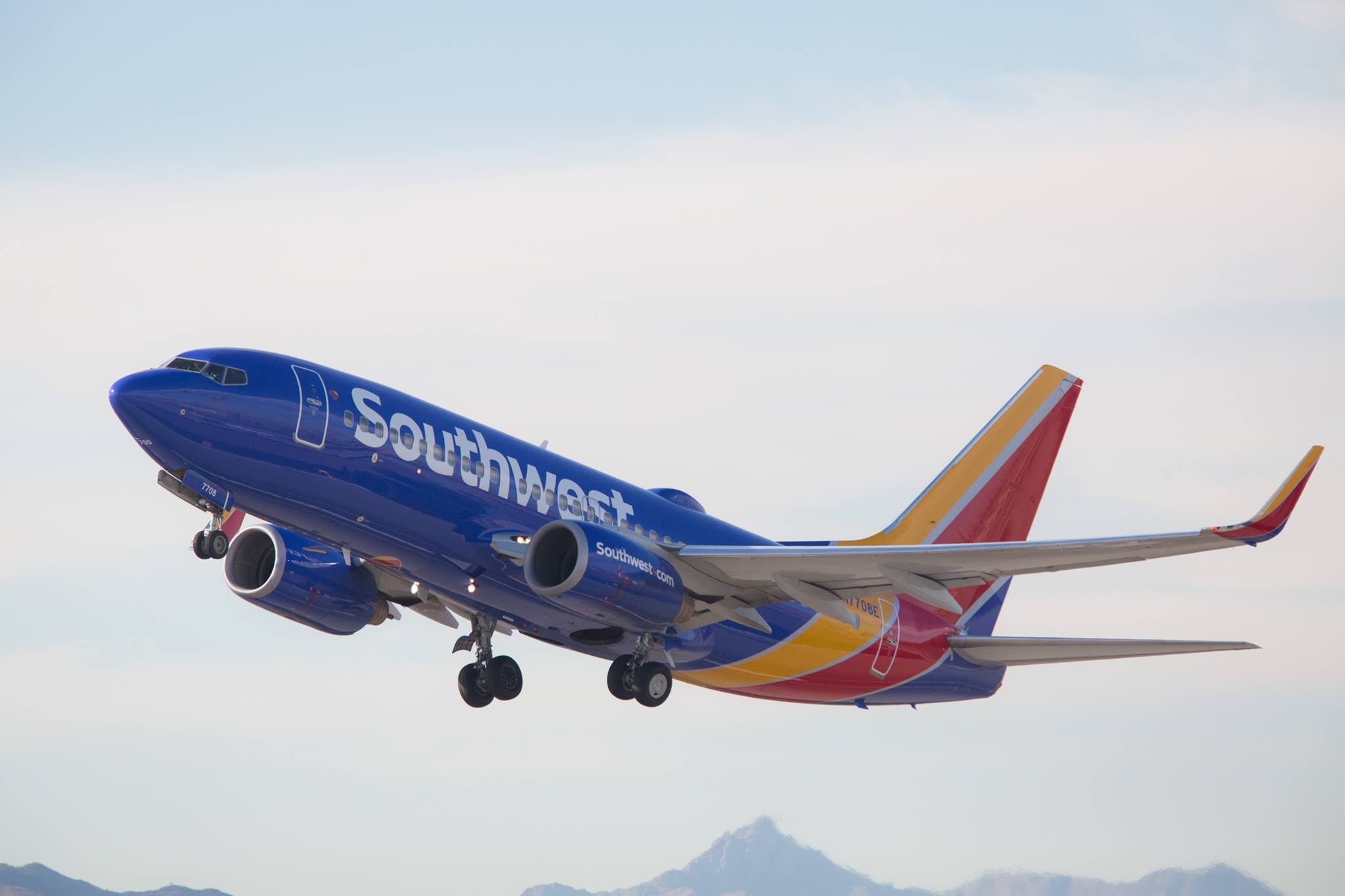On Wednesday afternoon, airline shares tanked in unison after the Associated Press reported that the U.S. Department of Justice has opened an investigation into whether the top U.S. airlines are colluding to keep capacity growth down, and thereby raise fares.

The DOJ is investigating potential collusion by the top U.S. airlines. Source: Wikimedia Commons.
The DOJ appears to have contacted each of the four airlines that dominate the U.S. air travel market: Southwest Airlines (LUV +0.05%), Delta Air Lines (DAL 1.21%), American Airlines (AAL 2.16%), and United Continental (UAL 2.18%). However, it isn't likely to find anything.
Sure, airlines want to keep fares as high as possible. Like any other type of business, airlines want to maximize profit. Some of these airlines have even implemented capacity cuts recently. But the idea that these four big airlines are colluding seems extremely far-fetched.
The DOJ moves in
The DOJ has confirmed that it is investigating possible collusion among the airlines to keep capacity growth down and fares up, according to CNBC. Federal investigators may look into public statements by airline executives and airline industry analysts as potential evidence of collusion.
To be clear, at this point, the DOJ is just in an investigation stage. It's quite possible it will ultimately decide not to pursue a case against the airlines.
However, the DOJ has taken a very tough stance on antitrust issues recently. In the airline industry specifically, the DOJ sued to block the American Airlines-US Airways merger in 2013, only relenting after the companies agreed to significant concessions.
Three strikes against collusion
Three examples show why it is highly unlikely that the Department of Justice will uncover meaningful evidence of collusion.
First, the idea that Southwest Airlines might be involved in a plot to keep capacity growth down is laughable. Southwest announced plans last fall to grow capacity by 6% in 2015. It later increased its capacity growth projection to 7%, and then to 7%-8%, only to revert to a 7% growth plan after investors protested its accelerating expansion plans.

Southwest Airlines is actually growing quite a bit this year.
True, Southwest did dial back its capacity growth plans, but by a negligible amount. And this still represents the fastest capacity growth rate at Southwest since 2007 (excluding the impact of the AirTran acquisition). Southwest has also said it plans to grow nearly as quickly in 2016. If Southwest Airlines is attempting to contain capacity growth, it's doing a terrible job.
Second, Delta Air Lines CEO Richard Anderson got into a sharp exchange last October on an earnings call as airline analysts urged Delta to reduce its capacity growth. After swatting away several questions, Anderson told the analysts to back off, saying, "[It's] not appropriate for the analyst community to be engaging in what forward capacity and pricing decisions are at Delta."
A few months ago, Delta did announce a cutback in its international capacity plans -- but only after results deteriorated in multiple regions across the world. Airline analysts may have wanted to encourage Delta to tacitly coordinate with other airlines on capacity growth. But it seems pretty clear that Delta acted independently based on the changing business outlook.
Third, to the extent that there have been cuts to U.S. airlines' capacity plans, these have targeted international routes. Since the U.S. carriers face competition from foreign carriers in many of these markets, it's much less plausible that they could collude to limit capacity growth.
Furthermore, all three legacy carriers are facing steep unit revenue declines on their international routes. United Continental has projected that unit revenue would fall 7% on international routes in Q2. American Airlines expects systemwide unit revenue to decline 6%-8%, with the worst results coming in the Pacific and Latin American regions. Delta has also projected a high single-digit decline in international unit revenue.
These weak results are more than enough justification for targeted capacity cuts. If the airlines were holding capacity flat in strong markets, that might be evidence of collusion. But domestic capacity has continued expanding at a healthy pace even as international capacity plans have been trimmed.
An ironic situation
It's especially ironic that the airlines are being investigated now, because after years of steady unit revenue growth, all four big airlines are facing significant unit revenue pressure this year. If they are colluding in any way, they haven't been very effective yet.
I do not think the DOJ will find anything to warrant bringing a case against any of the airlines. A slightly greater risk is that airlines will be more hesitant to cut capacity in response to weak demand for fear of appearing to collude. Even that risk is probably not very significant.
As a result, the recent drop in airline share prices could make for another good buying opportunity for investors who are willing to ride out some uncertainty for the next year or two.









